What have you grieved? What have you survived?
When I was diagnosed with breast cancer at 29, I didn’t do what the doctors told me to do. I said no to radiation. I didn’t accept that I was fated to develop an aggressive disease because a few cells were starting to mutate. I went into deep inquiry about the psychology of grief, and I learned how it relates to hormones in breast tissue. I found the best supplements and took them diligently. I tested my genes. I tested my beliefs. I found an oncologist who was famous for telling women to stop over treating early breast cancers as a death sentence and I dedicated myself to living as fully as possible despite the constant fear.
Until I had the double mastectomy, it was pretty minor. There were surgeries and some minor scars, but nothing earth-shattering. I was prescribed anti-cancer drugs, and hormone suppressants that gave me PMS from hell. Mostly, though, it was manageable. Not really quality of life altering. But as the years went on—it was six years before I had the mastectomy—it definitely took a toll. Some of the anti-cancer drugs—tamoxifen in particular—wreaked havoc on my hormones.
Then I had the double mastectomy, followed by a long, excruciating reconstruction process. There were times when I was completely flat chested. Times where things were poking out of my skin… Along the way, I experienced really intense visuals, and profound grief.
When have your beliefs been tested?
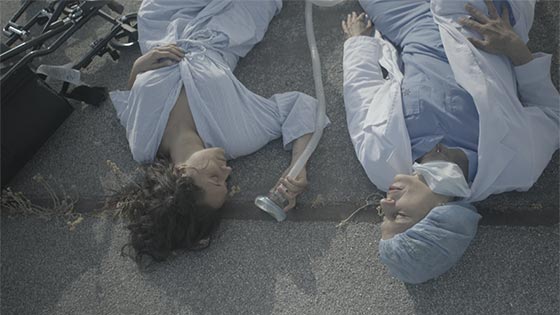
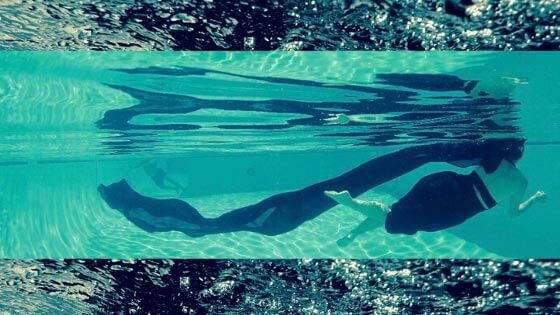
In the music video “El Temblor” I have three different breasts.
The breasts I was born with, then temporary expanders, then permanent implants.
The image of me swimming in the water is the last day I remember having my breasts.
This loss, however painful, initiated a monumental shift in my life.
It required that I reimagine the female body, and learn to live with my own that is scarred and imperfect.
Whether we’ve had breast amputations or not, people socialized as women experience tremendous body pressure throughout our lives. In the months recovering, it amplified the bodily pressure that I had always felt.
I discovered that pleasure was the medicine that kept me healthy. I spoke to my scars, taught myself how to relax into my new body. I continued to make love through months of breast reconstruction surgeries. Even with drains coming out of my body I still somehow managed to focus on pleasure.
My partner now compares me to Kinstugi Japanese pottery—that when it breaks instead of trying to hide that it’s broken, you fill in the cracks with gold. He said that’s what my body is like.
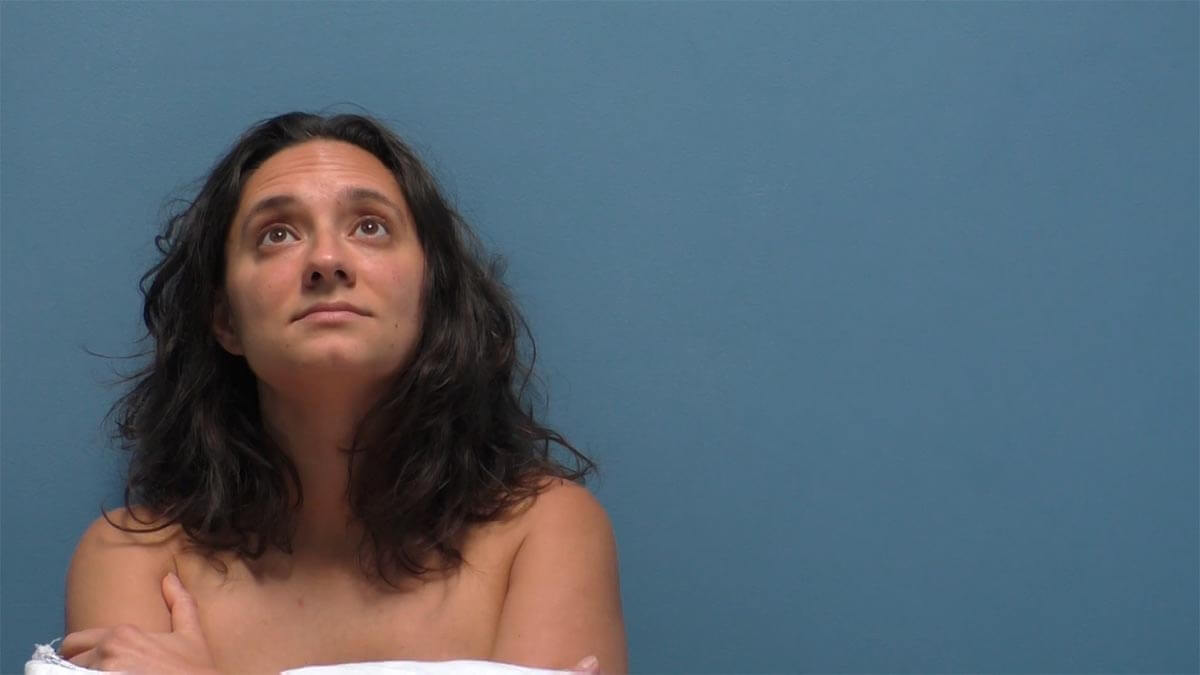
I’m deeply moved and often brought to tears by the women who now make it a point to photograph their imperfect bodies. I find myself returning to those images of women who put their real—not photoshopped—sometimes post-op bodies for the world to see.
What are your scars?
Can you reimagine your imperfections and paint them with gold?
As relics of your bravery—for what you have survived?
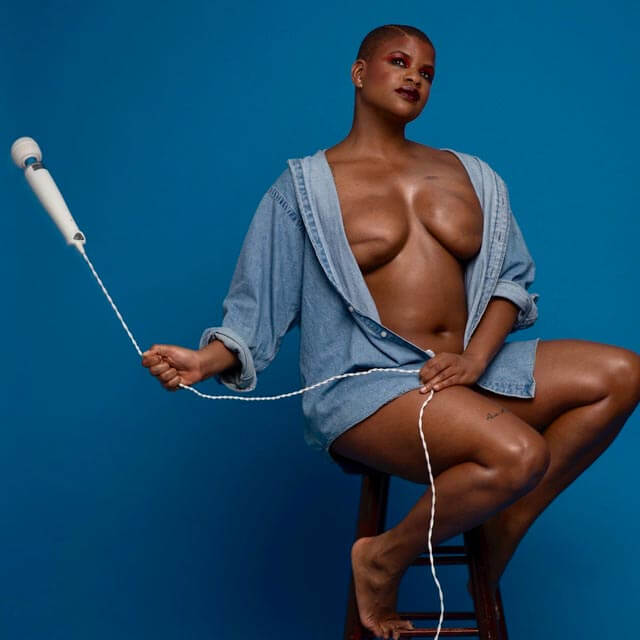
Ericka Hart‘s work broke ground when she went topless showing her double mastectomy scars at Afropunk Fest 2016.
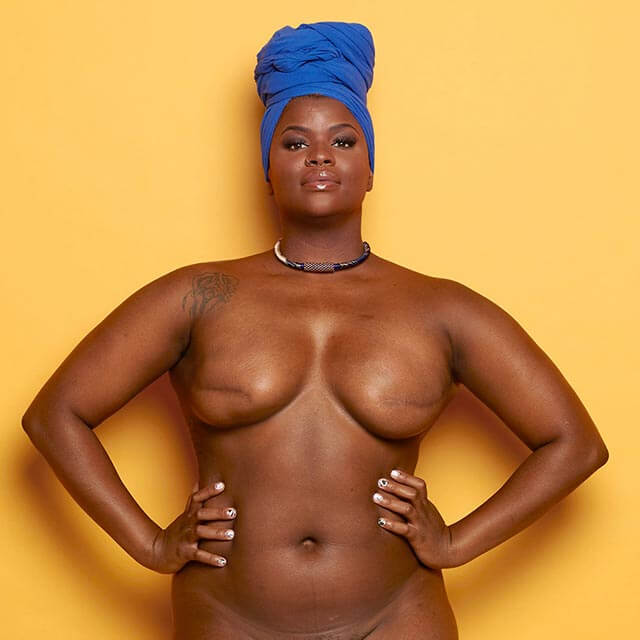
“I’ve taught for a while and I feel like [showing my scars] is kind of like teaching, but using your body instead of your mouth.”
“El Temblor”
Translation: “The Tremor in my blood”
In collaboration with Miles Solay and his band Outernational, “El Temblor” is a creative expression of my treatment with breast cancer.
